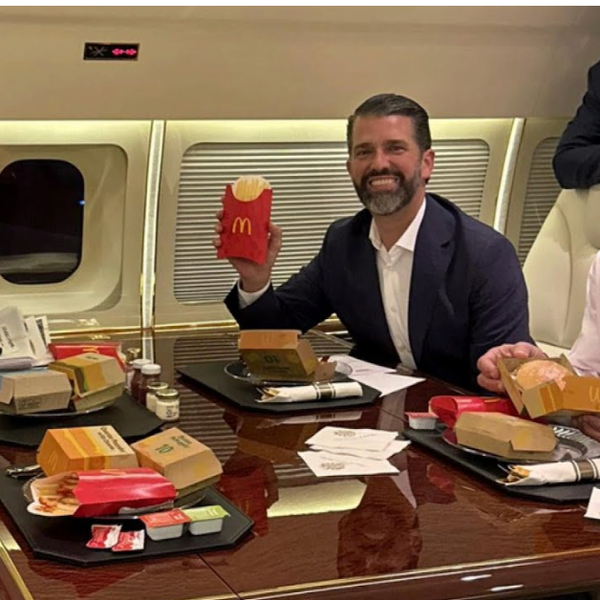
By Dave Helling, The Kansas City Star (TNS)
KANSAS CITY, Mo. — In late November, Republican presidential candidate Donald Trump and Chuck Todd of NBC News argued heatedly over Trump’s claim that “thousands and thousands” of people cheered in New Jersey on the day of the 9/11 terror attacks.
“I saw it on television,” Trump said. “I have hundreds of people that agree with me.”
Todd pointed out that no evidence of such widespread celebrations had surfaced.
“You’re running for president of the United States,” he said. “Your words matter. Truthfulness matters. Fact-based stuff matters.”
Maybe. Maybe not.
Stretching the truth, sometimes to the breaking point, has always been a part of politics — candidates and campaigns routinely exaggerate personal and political claims, unfairly characterize opponents’ positions and ignore contrary evidence.
Any visit to a mailbox during campaign season confirms that diagnosis.
But some critics and pundits say 2016 may set a new standard for misleading politics. Trump’s popularity, they say, reflects a new calculation: 21st-century voters are so overwhelmed by political messages they may now discount independent fact-checking.
That view is reinforced, they say, by an explosion of alternative, often partisan media. In 2016, it seems, candidates may feel free to say anything, without fear of contradiction or sanction.
“Politicians have always lied,” David Roberts argues in a column on Vox, a policy and politics website.
“But in the days when there were fewer media outlets and their power was more consolidated, politicians’ ability to lie was at least somewhat shaped and tempered by the media. … Now there are so many outlets, so many voices, that the old guard has very little control over the narrative.”
Fox News media critic Howard Kurtz said Trump has rewritten the rulebook and angered the mass media.
“What’s more, some of the media attacks against the Republican front-runner are so virulent that they overshoot the mark, and possibly even backfire,” Kurtz said.
Political reporter Karen Tumulty in The Washington Post: “Donald Trump’s offensive comments and flat-out falsehoods just keep coming. … Will Trump eventually cross the line — or is he proof that lines no longer exist?”
Trump strongly denies misleading voters, and his supporters vigorously defend their candidate.
“Donald Trump does speak his mind. He is not the most tactful of speakers,” wrote Roger Katz of Arbalest Group, a pro-gun organization.
“However, there is one thing Trump is not. He is not a liar.”
Republicans also point to Hillary Clinton’s statements about her role in the killings in Benghazi, her emails or Al Gore’s claims about his involvement in the early Internet as evidence that Democratic candidates routinely lie and exaggerate too.
Bill Clinton often struggled with facts.
Barack Obama has made misstatements on energy, health care, foreign affairs, taxes and spending. He once promised Americans they could keep their health care plan if they liked it.
But some political scientists say Trump’s approach has been different.
It’s one thing, they say, to claim tax cuts won’t hurt the budget or Mexico can be forced to build a wall along the border — those assertions, and others, are difficult to test and subject to disagreement. They’re not really lies.
But this week, after calling for a temporary ban on Muslim immigration, Trump said police officers refuse to go into certain areas of Paris for fear of Muslim attacks. French officials denied the claim, and The New York Times said the statement “has no basis in fact.”
In a tweet, Trump claimed 81 percent of white homicide victims are killed by blacks, a claim the fact-checking website PolitiFact called “wildly” inaccurate. The correct figure, according to the website and the FBI, is 15 percent.
Trump has repeatedly claimed he is self-funding his campaign. In fact, at the end of September, Trump had raised more than $4 million from the public and had spent $5.5 million. His fundraising records are easily found online.
At the end of last week PolitiFact had examined 72 Trump claims and statements, declaring 45 of them “false” or “pants on fire” untrue, more than any other major presidential candidate. It rated none of Trump’s statements fully “true.”
Trump hasn’t retracted any of it. His statements and tweets routinely criticize fact-checking reporters and news organizations as dishonest.
A recent survey by Quinnipiac University showed Trump comfortably leading the GOP field despite a belief from a clear majority of voters surveyed that the candidate is untrustworthy. (A similar margin found Hillary Clinton just as disingenuous.) But both candidates lead in the poll, suggesting voters this year consider other traits more important than honesty.
“It doesn’t seem to matter what he says or who he offends, whether the facts are contested or the ‘political correctness’ is challenged, Donald Trump seems to be wearing Kevlar,” said a statement from Tim Malloy, assistant director of the poll.
But Trump “is a unique case,” said Emily Thorson, a political science professor at Boston College who studies political messaging.
“He just doesn’t seem to care that much about what the media thinks,” she said. “He’s kind of operating in a different sphere.”
In fact, Thorson said, concerns about Trump’s rhetoric among reporters and politicians may be overblown. Voters, she said, will soon look at the presidential campaign more intensely, and candidates’ misstatements will matter more.
“As much as we are paying attention, most people aren’t,” she said. “A lot of the people saying, ‘Yeah, I’ll vote for Trump,’ have no idea of all the things he’s saying.”
The phenomenon isn’t limited to Trump, of course.
Some consultants say voters’ lack of focus on statements and claims can turn up in other campaigns, and has.
Increasingly, they say, voters must wade through so many political messages that they lose focus on the facts. That’s particularly true with the proliferation of websites, blogs, social media and other forms of political communication.
“Voters get bombarded, whether it’s mail pieces or TV ads,” said Kansas City-based communications and political consultant Jason Parson. “They experience fatigue, and factual information gets lost. … It can be very frustrating.”
Stephanie Sharp, a former Kansas legislator and now a communications consultant, used a familiar saying to illustrate the problem.
“What’s the saying about a lie makes it around the world before the truth gets its boots on?” she asked.
“Once it’s out there, it’s been said and there’s no unsaying it.”
©2015 The Kansas City Star (Kansas City, Mo.). Distributed by Tribune Content Agency, LLC.
Photo: U.S. Republican presidential candidate Donald Trump waves as he leaves the stage after speaking at the meeting of the New England Police Benevolent Association in Portsmouth, New Hampshire December 10, 2015. REUTERS/Mary Schwalm








